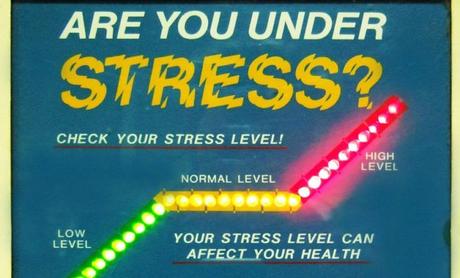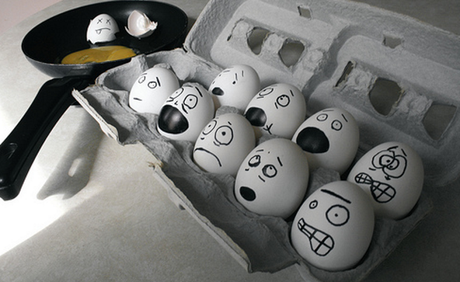
In today's business world, it's not enough to simply be busy. We have to be doing the right things in the right order all while showing the alignment between our individual output, and the goals of our teams and wider organizations. So, when stress rears its head, as it inevitably will do, we must find ways to curb it, if not totally kick it to the curb, in order to maintain the consistent levels of effectiveness that fuel our careers and the faith that our stakeholders have in our abilities.
Imagine you have a handful of priorities that need to be addressed in the next hour. If one of those priorities had the power to completely derail the other priorities if you didn't manage it properly, you'd surely give it the attention it needs, right? Well, that priority is stress. You might not write it on a sticky note, but to keep it in check you have to manage it just like you would any other project on your to-do list.
There's no magic system where you can turn the productivity dial up and turn the stress dial down, but there are a few ways to develop your self-awareness and resilience to keep the weight of stress from becoming overwhelming.
Stress tests us, but it doesn't have to taunt us. Here's what I recommend to keep stress in check.
Recognize your individual stress signals
There's nothing worse than being blindsided by something you could've seen coming if you had just kept an eye out for it and stress is definitely the type of thing that can sneak up on you. Because we all have different strengths, weaknesses and interpersonal styles, stress looks different for every person just as productivity does. During times of stress, even our strengths (when overused) can do us a disservice. For instance, a sociable and inclusive extrovert may talk over people and become overbearing when they are stressed. Similarly, a reserved and thoughtful introvert may become even more inwardly-focused and may seem standoff-ish when they are stressed. It's different for each person, but if you know how you show up on good days and bad days, you can see the stress signs coming and side-step your typical bad-day behaviors before it becomes a terrible, horrible, no good, very bad day.
Don't try to be everything to everyone
The best way individuals can support their careers, teams, and organizations is by knowing and showing their authentic selves. Sometimes we stress ourselves unnecessarily because we try to be everything to everyone, which is a futile and exhausting task. While this dynamic can come from the good intention of wanting to please all of our stakeholders, it can quickly get individuals into a situation where they over promise and under deliver. Instead of being everything to everyone, it is better to be the best version of yourself to the people who need you to be you.

At Insights, we believe understanding our individual personalities on a deeper level can empower us to navigate our responsibilities and relationships more easily. We know that anyone can do anything, but we also know that if you're constantly stretching yourself in areas that don't come naturally to you rather than sashaying to the sound of your strengths, you'll get tired and stressed very quickly.
Prioritize and progress the right tasks by checking your perceptions
In our professional lives, we're all accountable to get things done, but it is how we perceive what is needed of us and how we think we should get it done that impacts our ability to do so. Stress can strike when you're caring about the wrong things and they're getting in the way of your ability to get the right things done. To not get trapped in an endless cycle of activities that aren't aligned to desired results, you have to know yourself and what's required of you. To help, try taking some time to check what you're perceiving in the context surrounding a project.
For instance, ask yourself what biases could I be bringing to this task that could be hindering my productivity? Is there anything I'm assuming has to be a certain way when it really doesn't'? By looking at your workload through this lens, you can develop strategies to work smarter, not harder.
Stress is one of those facts of life and regardless of where you are in your career, and what capabilities and competencies you have acquired, the ability to manage stress can always benefit your professional life. Irish author C.S. Lewis wrote, "It's not the load that breaks you down, it's the way you carry it." Ultimately, your ability to boost productivity and curb stress is about making space to understand yourself and being intentional in all that you do.
About the Author: Virginia Fraser

.
Eggs image credit. Main image credit.
Ms. Career Girl was started in 2008 to help ambitious young professional women figure out who they are, what they want and how to get it.

